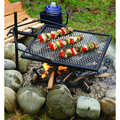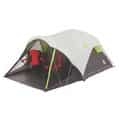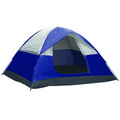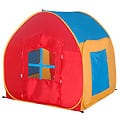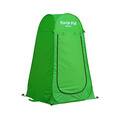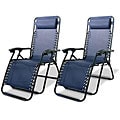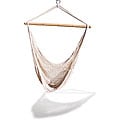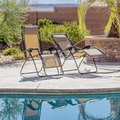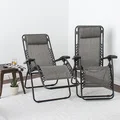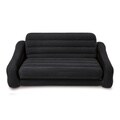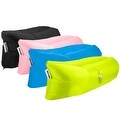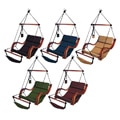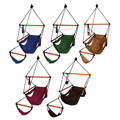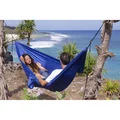
Camping First-Aid Kits Should Include:
- Sterile gloves
- Sterile dressings
- Cleansing agent/wipes
- Antibiotic ointment
- Burn ointment
- Adhesive bandages
- Elastic bandages
- Medical tape
- Eyewash solution
- Thermometer
- Small flashlight
- Prescription meds
- Pain relievers
- Scissors
- Tweezers
- Bug spray
- Sunscreen
- Blister pads
- Sterile gauze
- Hand sanitizer
- Rain poncho
- Lighter or matches
It's important to be prepared for any situation when you're camping. This can make shopping for camping gear a little overwhelming. You don't want to forget anything, but you also want to pack light and keep the trip fun and simple. This guide answers frequently asked questions about camping gear, so you can easily figure out what you need and start enjoying nature.
Questions about Camping Gear:

-
What gear do I need to get started?
A few basic pieces of camping equipment are necessary for a safe and comfortable camping trip. You'll want to at least have these basics. These items will prepare you for a car-camping trip (one where you drive to a campground that has a few amenities, like running water, fire pits, or maybe a grill).
Camping Gear Essentials:
Tent: Tents are available in many sizes and materials. Larger tents are comfortable, but they may be too heavy for backpackers.
Sleeping bag: Down sleeping bags offer the most warmth, while synthetic sleeping bags are more affordable and are also machine washable.
Cooking equipment: Roasters and grills allow you to prepare simple meals, while camp stoves give you more options. Dutch ovens provide you with a fun way to make casseroles and cakes. Whichever cooking equipment you choose, be sure to pack the right food to cook on it; for example, if you bring a griddle, make sure to pack pancake mix and eggs. Easy-to-wash serveware is important, but don't worry about buying a large set, as your morning coffee cup will be used for your water at dinner, too.
Lanterns and flashlights: You'll need to light things up at night, and it's good to have a few different options, so if one fails, you'll have backup. A lantern fills a tent or picnic table with light, while a flashlight can get you to the public restroom (or behind a friendly tree) in the middle of the night.
First aid: Above all else, a well-stocked kit is a must. See the list above for what it should include, and modify it for your personal needs. Pack it all in a waterproof container, so it won't get ruined by rain or a fall in a lake.
-
I have the basic camping gear, but I want to really get comfortable at the campground. What should I buy next?
The basics will get you out and camping, but you can always add more to your collection for a more comfortable experience. If you want to relax, look for camp chairs and hammocks. If you want to get a better night's sleep, shop for air mattresses or cots. If you want to observe nature, shop for binoculars and guide books. If you want to make a party of it, shop for outdoor games, like horseshoe sets.
-
I'm ready for a real backcountry adventure. What camping gear do I need?
Choose a hiking backpack with a frame and waist support. Next, shop for backpacking versions of the basics, like a smaller tent and lighter, warmer sleeping bag. Instead of a lantern, you may want a headlamp, which is like a headband with a flashlight on the forehead. Bring a water filter and a water bottle for hydration. Pack food that is lightweight and travels well, and that can be prepared with just a fire or boiling water; you can find small, portable camp stoves, too. You'll need a compass and a map, or a GPS unit. Dress for extreme elements and be prepared to layer; pack sturdy jeans, sunglasses, and sunscreen as well as a warm hat, sweater, and gloves. Your hiking boots and socks will be the gear you notice the most when you're backpacking, so don't skimp on those.
-
How do I break in my hiking boots?
First, wear your boots for short periods of time in your house. This will help you decide which socks will cushion your feet the best. Lace your boots tightly, so you'll be wearing them the same way in the house as on the trails. After you've worn your hiking boots around the house, and they seem to fit comfortably, wear them while running a few errands around town or in the yard. Don't ever skip breaking in a new pair of hiking boots. Remember that you will be wearing these for a long time, possibly with the weight of outdoor supplies on your back.
What Do You Want to Do Next?

Shop Tents Shop Sleeping Bags Shop All Camping Gear
See All Guides Read More Sports & Fitness Guides Learn More about Outdoor Gear




















